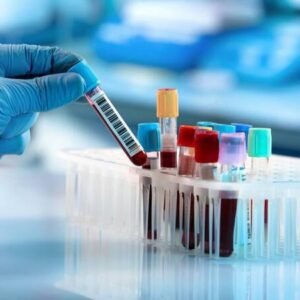- Syphilis Antibodies Quantitative Test: This blood test quantitatively measures the levels of non-treponemal antibodies in response to a syphilis infection. It is often used for monitoring disease progression and treatment response.
- Purpose: The quantitative test provides a numerical value that helps healthcare providers assess the severity of the infection and evaluate the effectiveness of treatment over time. It is particularly useful in patients undergoing therapy for syphilis.
- Test Methodology: The test typically involves using a sample of serum to determine the concentration of antibodies using a method such as the Venereal Disease Research Laboratory (VDRL) test or Rapid Plasma Reagin (RPR) test, which are then quantified to provide a measurable result.
- Interpretation:
- High Titer Levels: Indicate active syphilis infection or inadequate treatment response, necessitating further evaluation or a change in therapy.
- Low or Decreasing Titer Levels: Suggest successful treatment and resolution of the infection, which is monitored through follow-up testing.
- Clinical Relevance: The quantitative measurement of syphilis antibodies is crucial for managing patients with syphilis, guiding treatment decisions, and monitoring for potential reinfection or relapse.
- Limitations: While this test is useful for monitoring treatment, it is important to confirm positive results with treponemal tests (e.g., FTA-ABS) for a definitive diagnosis of syphilis, as non-treponemal tests can produce false positives.
- Description
- Reviews (0)










Reviews
There are no reviews yet.